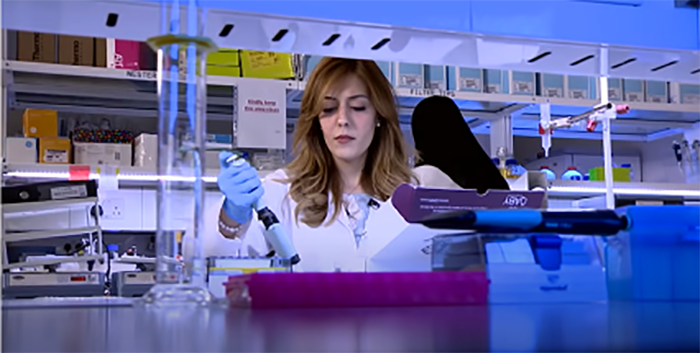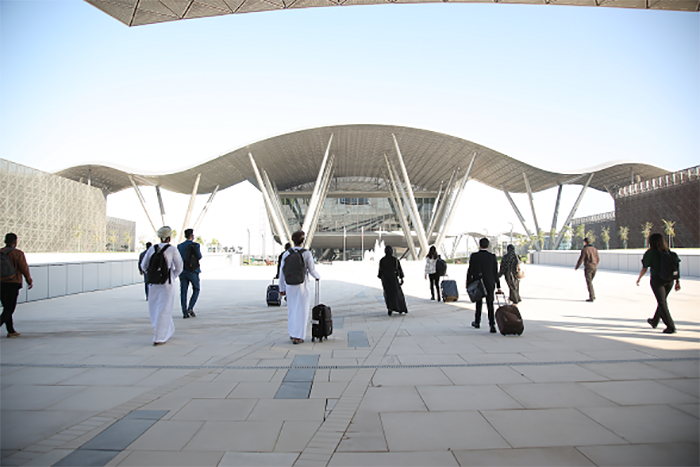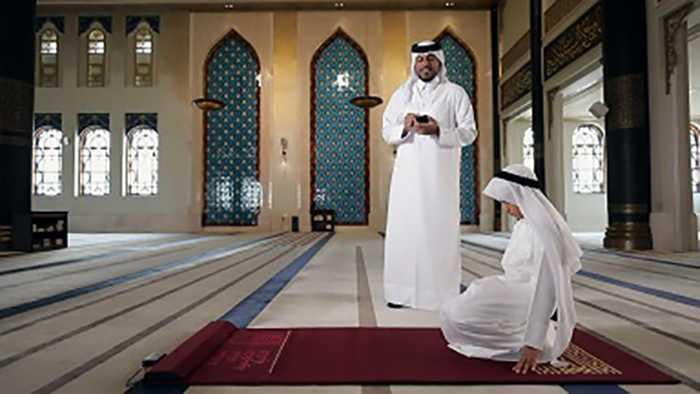In the past decades, many of the MENA region’s best Arab scientists, inventors, engineers, designers, and innovators left their home countries for better opportunities in the West. While the reasons for the “brain drain” in this part of the world have been varied, many of these talented youth cite a lack of support and resources as their reason for leaving. However, the situation is evolving – for the better.

For more than a decade, Qatar has become a confluence for science and innovation in the MENA region. It is home to Qatar Foundation’s (QF) edutainment show Stars of Science, and it hosts Qatar Science & Technology Park (QSTP). The show falls under QSTP’s umbrella of programs that support incubation and start-ups, enhancing capacity to further develop the Qatar Foundation Research, Development and Innovation (QF RDI) ecosystem. The area is fast becoming recognized as the epicenter for technological, engineering, and scientific innovation.

This ecosystem supports and nurtures home-grown innovations from some of the region’s brightest young Arab minds with a view to stemming the tide of MENA innovators seeking resources, support, and mentorship elsewhere. It provides inventors with a nurturing environment where they can refine their inventions, gain guidance, confidence, and mentorship, with the aim to retain promising talent. And with numerous alumni creating innovations that are being used globally, the program also helps to showcase Arab talent to the wider world.
“Stars of Science contributes to the nurturing of a new innovation culture in the Arab world, by empowering young people across the region to recognize how they can be what QF calls ‘students of change’: passionate, engaged people who think outside the box and beyond the everyday, push their boundaries and horizons, question and explore, refuse to be deterred from their goals, and dedicate themselves to helping change the world for the better,” says Wadha R. Al-Adgham, Program Manager of Education at QF RDI’s, QSTP.
While Stars of Science helps shape the region’s future through revealing the potential of innovators, QSTP promotes one of QF’s key objectives; empowering the innovator behind the idea.
Contestants are automatically enrolled into the flagship accelerator program, XLR8, where they can continue working on their projects with QF’s support. This unique innovation hub assists inventive entrepreneurs with successful startups, helping them bring their creations to the market within the region, but also internationally.
One such innovator is Dr. Nour Majbour, former researcher at Qatar Biomedical Research Institute, part of QF’s Hamad Bin Khalifa University (HBKU), who took her fascination with the human brain and created a laboratory kit designed to diagnose Parkinson’s disease in its early stages through antibodies. After the show, Dr. Majbour went on to further develop her Stars of Science project, named QABY, within Qatar’s supportive technological ecosystem and officially registered it as a trademark with QF.
Another alumnus from the show is veterinarian Dr. Mohammed Doumir from Algeria – his ingenious project addresses the issue of limping in racing camels. Post Stars of Science, Qatar’s unique collaborative ecosystem appealed to Dr. Doumir, and he stayed in the country pushing for technological advancement and promoting innovation. With the support of the QSTP Product Development Fund – which incubated and funded his idea – he opened his own company named Vetosis, and is now the director for veterinary research and innovation at QSTP. Mohammed is currently adding new applications to his device for camel training and fitness promotion.
In Stars of Science Season 11, Abdulrahman Saleh Khamis, from Qatar, took inspiration from his Islamic faith to develop Sajdah, the unique Smart Educational Prayer Rug. Targeted at young and newly converted Muslims, the rug teaches the user the correct way to pray — and more. After Stars of Science, Abdulrahman started his own company, Thakaa Technologies currently incubated at QSTP where he received funding through the QSTP Product Development Fund. He also successfully completed a pre-order crowdfunding campaign on Launchgood, a platform co-founded by another Stars of Science alumnus, Omar Hamid.
These projects serve as prime examples of incredible collaborations with Qatar’s technological ecosystem, and are a testament to successfully promoting Arab innovators. They highlight Qatar’s unique atmosphere of innovation and support, to the benefit of the Arab region – and beyond – transforming ideas into inventions that positively impact local and international communities.
In short, there has never been a better time to be an Arab innovator based in the Middle East and North Africa.
With Stars of Science airing every Friday and Saturday on seven channels in the region and online, from September 10, 2021, to October 22, 2021, audiences will have the chance to immerse themselves once again in the innovation and entrepreneurial journeys of a new crop of homegrown talents. With the help of the QF ecosystem, these innovators will realize their ideas and join an accomplished alumni community spread throughout the region.


COMMENTS